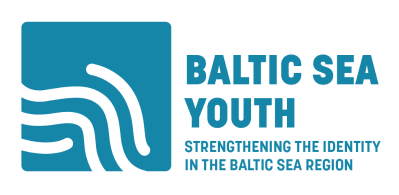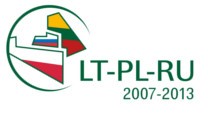 By Arkadiusz Żukowski
By Arkadiusz Żukowski
Full Professor, University of Warmia and Mazury in Olsztyn, Poland
The University of Warmia and Mazury located in Olsztyn in the north-east part of Poland, despite the short history (was founded on 1st September 1999), is dynamic, well developing and large academic institution (now 17 faculties and more than 27,000 students, additionally 600 PhD students and 1500 post-graduate students). The activity of the university is partly focused on scientific and educational cooperation with the partners from the Baltic Sea Region (BSR), among others the University is a member of the Baltic Sea Region University Network (BSRUN).
The large part of the international scientific and educational activity of the Institute of Political Science is concentrated on the internal and external issues of the Kaliningrad Region (Kaliningrad Oblast) of the Russian Federation in the context the BSR. At the Institute dozens of bachelor's and master's thesis on Kaliningrad Region were prepared. Also, the first in Poland, PhD dissertations on issues relating to the Kaliningrad Region were prepared. For 15 years the Institute has conducted researches on the above mentioned topics. Among others, very important and fruitful was submitting, receiving and completing the following grants: the research grant of the National Science Centre entitled “Poland towards the Kaliningrad Region in terms of European order changes” (2002-2004); the research grant of the Polish Ministry of Science and Higher Education entitled “The level of local democracy on the Polish-Russian borderland and its implications for trans-border cooperation” (2009-2011); the research grant of the Polish Ministry of Foreign Affairs entitled “Eastern Policy of Poland and international cooperation of Warmia and Mazury Region” (2012).
The great achievement for the Institute was receiving the European Union grant entitled “Close neighbours in the 21st century – new communication and perception” in the framework of the Lithuania-Poland-Russia Cross- Border Cooperation Programme 2007-2013 (realisation 2012 - 2014).
The general overall objective of the project was to develop and improve social contacts and cross-border cooperation especially in the field of science and education between the community border region of Warmia and Mazury of Poland and Kaliningrad Region of Russia, through the analysis of trends and challenges of the process of intensification of bilateral cooperation between both regions, and the promotion of joint projects in the field of research and education. The project also dealt with issues of migration, national and ethnic minorities and development policy as well as with activity to increase a level of knowledge about local government and political, social and cultural conditions on Polish-Russian borderland.
We try to investigate current and difficult issues, for example a completion of such research projects as “Monument's Policy in Poland towards post-Soviet memorial sites - Polish and Russian point of view” (2014) and “Small border traffic in conditions of crisis in Polish- Russian relations” (2015) – grants received from the Centre for Polish-Russian Dialogue and Understanding. The last our research topics are related to the Polish- Russian local border traffic, among others preparation of the international grant entitled “Mechanism of local border traffic on the Polish-Russian border. Theoretical determinants - international conditions - regional and local implications”.
Our main partner from Kaliningrad is the Immanuel Kant Baltic Federal University with which we do the most activities. The cooperation with the University of Kaliningrad focuses on: the exchange of experience of research, scientific queries, joint conferences and symposia, exchange of staff and students (scholarships, internships, educational events) and preparation of joint research projects and scientific publications. We also cooperate with the North-Western Academy of Public Administration (branch in Kaliningrad). Slowly but successfully we have established and developed cooperation with the academic and scientific centres from other Baltic states. Since 2014 we have established fruitful scientific and educational contacts with the Klaipeda University which has been expanded this year.
In the era of fastening and deepening globalization and regionalization, undertaking joint cross-border and trans-border projects as well as in research and education field is particularly justified. Only through mutual understanding and the development of contacts, it is possible to overcome different types of barriers resulting from the existence of the borders. It is particularly important to overcome mutual distrust and negative stereotypes and to build confidence and make deeper the social integration of the Polish-Russian borderland and the BSR in accordance with the principles of subsidiarity and sustainability. A long term aims should be developing a zone of common stability, security and prosperity as well as a creation of pro-state and civil societies in the region. The Institute of Political Sciences, besides strictly scientific and educational goals, wants to enter into these processes. The similarity of problems and research interests resulting from living in the BSR, further motivate to take this neighborly cooperation.
Source: BSRUN Bulletin Mar, 2016 (also online).












